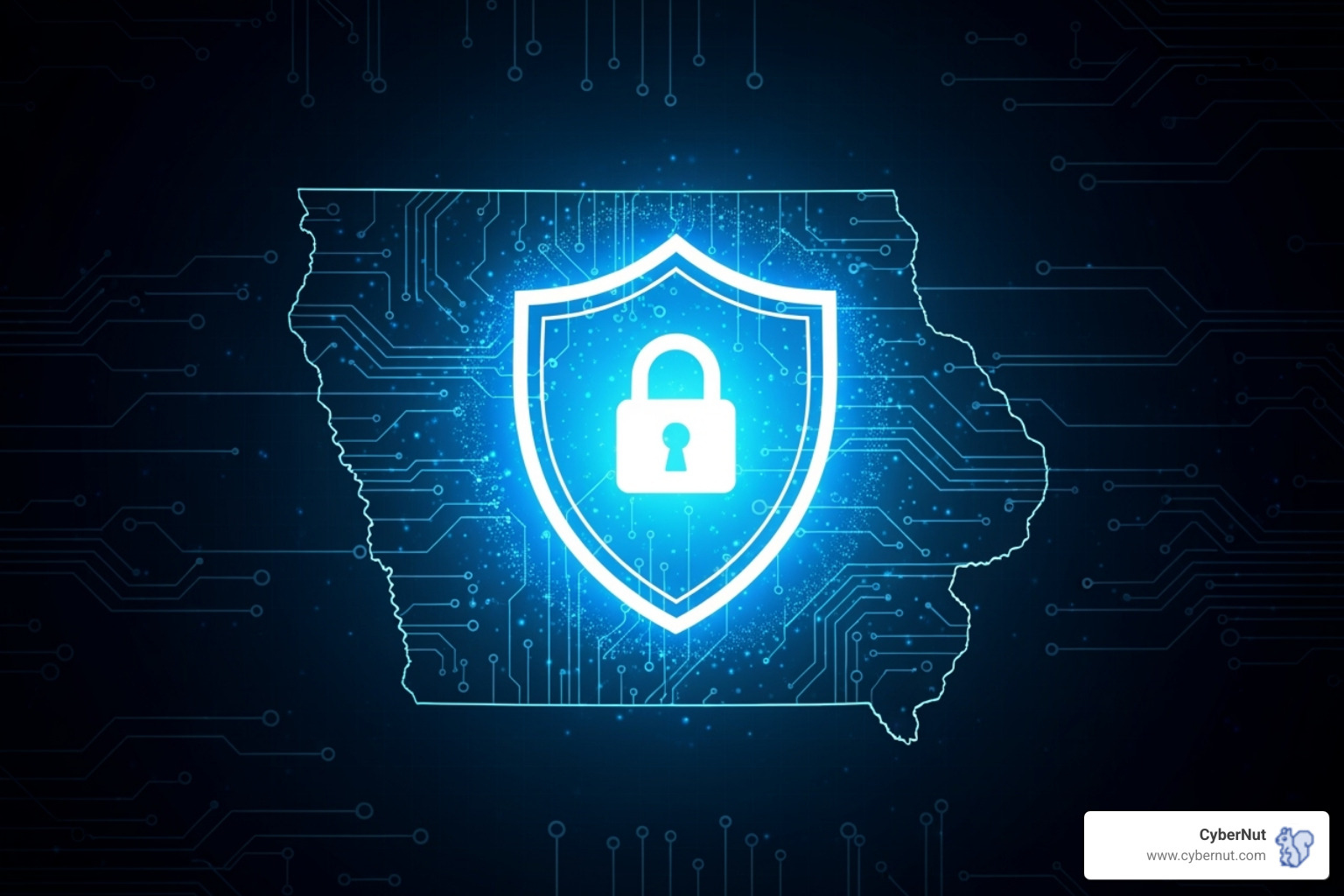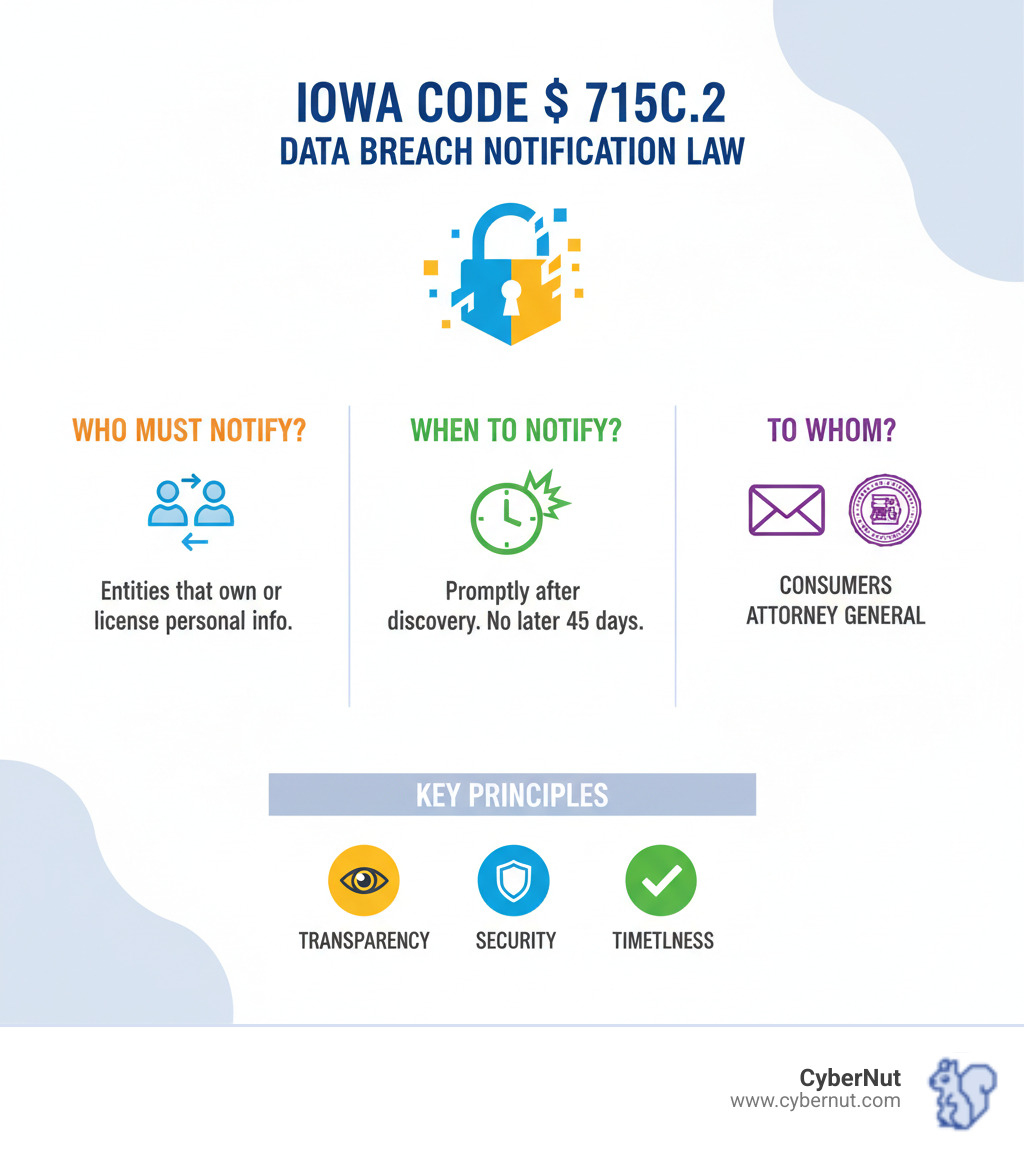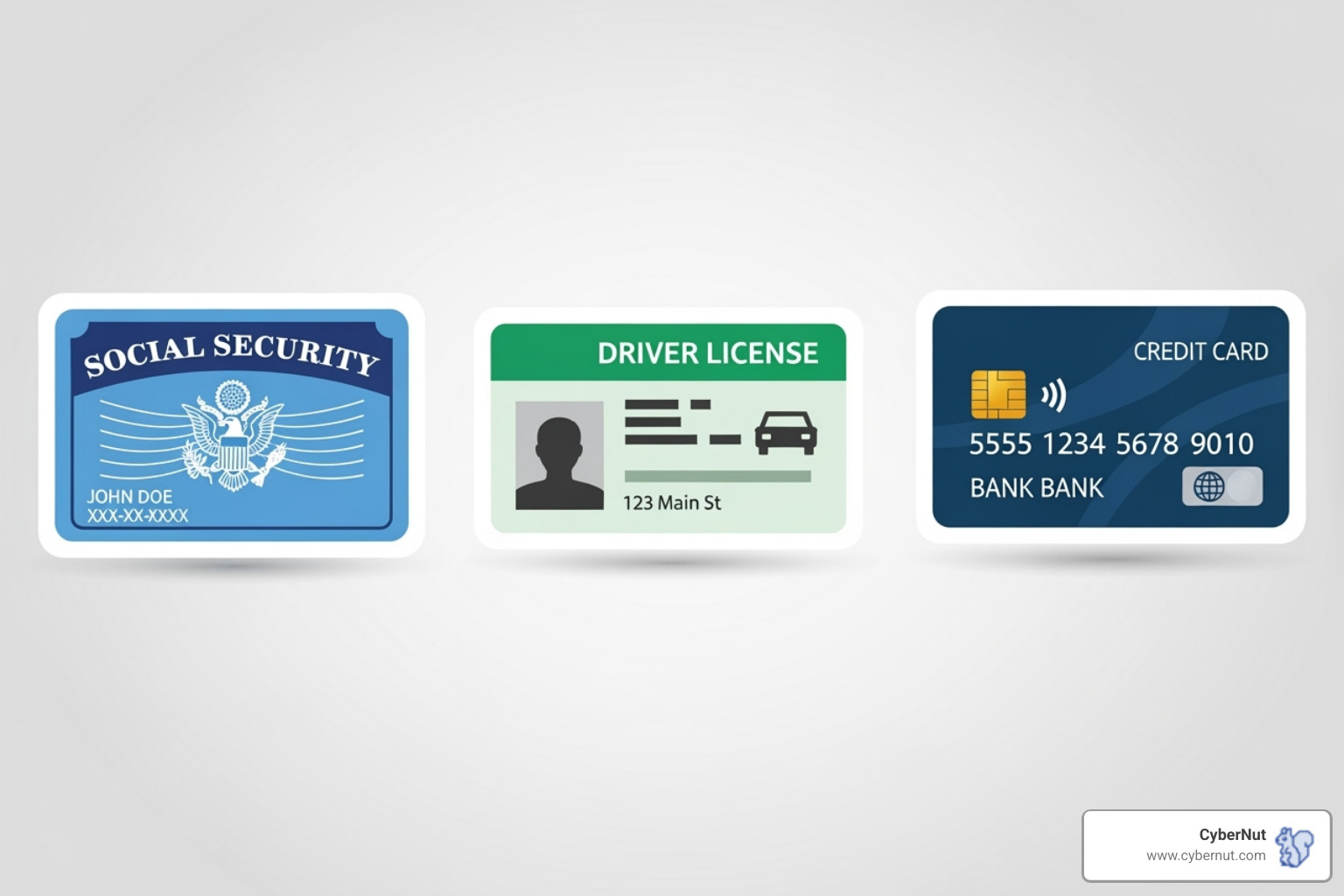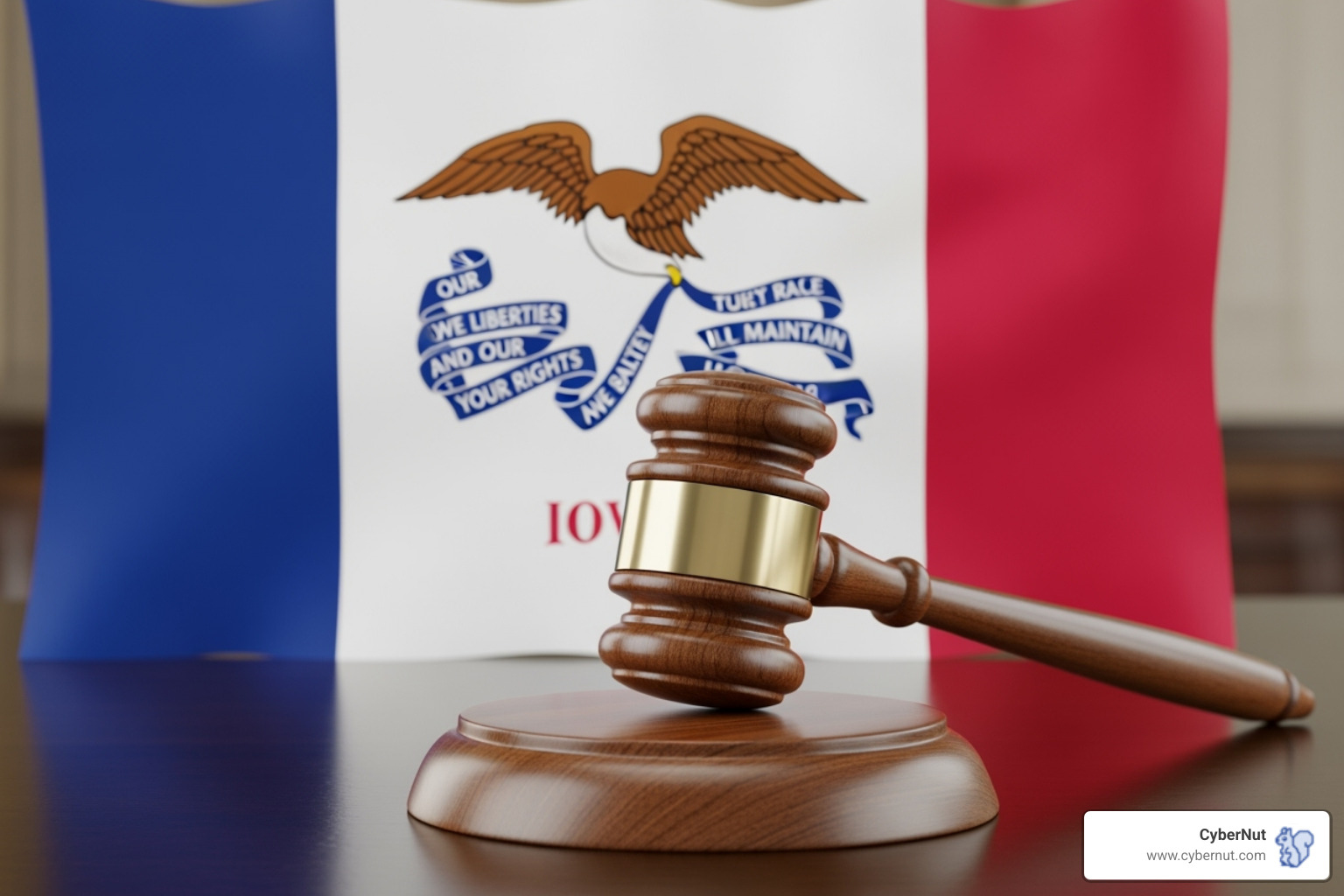
Oliver Page
Case study
October 16, 2025

Iowa Code § 715C.2 (Data Breach Notification Law) requires organizations holding personal data of Iowa residents to notify them promptly after a breach. For K-12 IT Directors, this law dictates the response when student or staff data is compromised.
Key Requirements:
The stakes are significant. Nationwide Insurance paid $5.5 million in a multi-state settlement for a data breach, with $321,837 going to Iowa's consumer education fund. Violations are considered unlawful practices, and the Attorney General can seek damages for residents. Passed in 2008 and amended in 2018, this law is a critical piece of your school's compliance framework.

Relevant articles related to Iowa Code § 715C.2 (Data Breach Notification Law):
Understanding the specific terms in Iowa Code § 715C.2 (Data Breach Notification Law) is the foundation for compliance. Key definitions like "security breach" and "personal information" determine your school's legal obligations.
A security breach is the unauthorized acquisition of personal information in computerized form that compromises its security, confidentiality, or integrity. This means someone accessed your data without permission, putting people at risk. The law also applies if digital data was printed to paper and then unlawfully acquired.
However, not all unauthorized access is a breach. The law includes a good-faith acquisition exception. If an employee accesses data for a legitimate business purpose but without specific authorization, it may not be a breach, provided the information is not used or shared unlawfully.

Iowa law protects data that could lead to identity theft. Personal information is defined as an individual's first name or first initial and last name, combined with one or more of the following:
A critical exception exists: if the compromised data was encrypted or redacted to industry standards and the encryption key was not also breached, notification may not be required. Proper encryption is a vital safeguard.
For a deeper understanding of what makes data sensitive, see our guide on Sensitive Data Definition and Types. To test your school's defenses, get a free phishing audit.
Once a breach is identified, Iowa Code § 715C.2 outlines specific notification duties. The goal is to inform affected individuals quickly so they can protect themselves. For precise legal wording, review the official text of Iowa Code Chapter 715C.
The entity that owns or licenses the computerized data is responsible for notification. For schools, this is typically the district, even if a third-party vendor manages the data. Notification must be made in the most expeditious manner possible and without unreasonable delay following the findy of a breach. A reasonable delay is permitted to determine the scope of the breach or if requested by law enforcement for an investigation.

To be effective, a notification letter must provide clear, actionable information. Each notice must contain:
If a data breach affects 500 or more Iowa residents, you must provide written notification to the Iowa Attorney General's Consumer Protection Division. This notice is required within 5 business days after notifying consumers. It should include details about the breach, the number of people affected, and the types of data compromised. Missing this deadline can lead to enforcement action.
After a breach, Iowa Code § 715C.2 mandates a swift and thorough notification process to protect affected individuals. This section provides a high-level overview of these core duties. You can always review the official text of Iowa Code Chapter 715C for the precise legal wording.
The data owner or licensor must notify affected consumers "in the most expeditious manner possible and without unreasonable delay." This requires a balance of speed and the time needed to assess the breach's scope.
Notifications must be comprehensive, including a description of the breach, the date it occurred, the types of information exposed, contact details for credit reporting agencies, and advice on reporting identity theft.
Primary methods include written notice by mail or electronic notice (email) if consented. For large-scale breaches where costs exceed $250,000 or more than 350,000 people are affected, substitute notice (website posting and media alerts) is permitted.
If a breach impacts 500 or more Iowa residents, the Attorney General's Consumer Protection Division must be notified in writing within five business days of informing consumers.
Compliance with the notification requirements of Iowa Code § 715C.2 is a critical step in managing a data breach. The law specifies who to notify, when, and how. You can always review the official text of Iowa Code Chapter 715C for the precise legal wording.
Data owners must notify consumers without unreasonable delay. This prompt action is crucial for allowing individuals to take protective measures.
Consumer notices must clearly state what happened, what information was involved, and what steps consumers can take. This includes providing contact information for credit reporting agencies and advice on monitoring for identity theft.
Standard notification is done via written or electronic notice. In cases of extremely large or costly breaches (over $250,000 in cost or 350,000 people), substitute notice through a website posting and statewide media is allowed.
A key threshold to remember is 500: if a breach affects 500 or more Iowa residents, the Attorney General's office must be notified within five business days of consumer notification. This step is mandatory and ensures state-level oversight. To reduce the risk of breaches that trigger these requirements, consider a free phishing audit for your school at https://www.cybernut.com/phishing-audit.
Understanding the consequences of non-compliance with Iowa Code § 715C.2 (Data Breach Notification Law) is crucial. The law is enforced by the Iowa Attorney General and carries significant penalties.

The Iowa Attorney General's Office is the primary enforcer of the data breach law. A violation is considered an unlawful practice under Iowa Code section 714.16, giving the Attorney General the authority to seek court orders for damages on behalf of consumers harmed by the breach. For a school district, this means the AG can pursue financial compensation for students or staff affected by a failure to notify properly.
Failing to comply can lead to substantial financial costs and severe reputational damage. While the law does not set a fixed fine per violation, the AG's ability to seek damages means penalties can be significant, especially in large-scale breaches.
A real-world example is the Nationwide Insurance settlement, where the company paid $5.5 million after a data breach. Iowa's share was $321,837, which was directed to the state's consumer education and litigation fund.
For K-12 schools, such penalties can be devastating to budgets and public trust. When parents learn their children's data was compromised and the school failed to follow the law, the damage to the district's reputation can be long-lasting. Proactive measures, such as a strong Incident Response Planning in K12 strategy, are essential to minimize both harm and liability. Prevention is far less costly than dealing with the aftermath of non-compliance. To assess your school's risk, consider a free phishing audit.
Here are answers to common questions about Iowa Code § 715C.2 (Data Breach Notification Law).
The law's main goal is to ensure Iowa residents receive prompt notification after a security breach compromises their personal information. This allows them to take protective steps against identity theft and financial harm.
Notification is generally not required if the personal information was encrypted or redacted to be unreadable, provided the encryption key itself was not also compromised. This "safe harbor" provision highlights the importance of strong encryption.
If a third-party vendor experiences a breach of data they maintain for you, they must notify you (the data owner) immediately. However, the ultimate legal responsibility to notify affected consumers typically remains with your organization as the data owner. This makes strong vendor contracts and due diligence critical.
Understanding Iowa Code § 715C.2 (Data Breach Notification Law) is about more than just compliance; it's about protecting the students, staff, and families who trust your school with their sensitive information.
We've covered the key definitions of a breach, what personal information is protected, and the specific requirements for notifying consumers and the Attorney General. We've also seen that failure to comply carries significant financial and reputational risks. The best strategy is to build a strong culture of security to prevent breaches before they happen.
Most data breaches begin with a single clicked phishing link. At CyberNut, we focus on preventing that first click with gamified, automated micro-trainings designed for busy K-12 educators. Our engaging approach builds cybersecurity awareness that sticks, turning your staff into the first line of defense.
Ready to see where your school stands? We're offering a free phishing audit to help you identify vulnerabilities before they become costly breaches. This no-obligation assessment will show you where your risks lie.
Get your free phishing audit at https://www.cybernut.com/phishing-audit.
For more insights on protecting your school, explore our comprehensive cybersecurity resources at https://www.cybernut.com/resources.
Iowa Code § 715C.2 exists because breaches happen. With the right preparation and tools, you can reduce your risk and be ready to respond effectively, protecting your community and your institution.

Oliver Page

Some more Insigths


Back